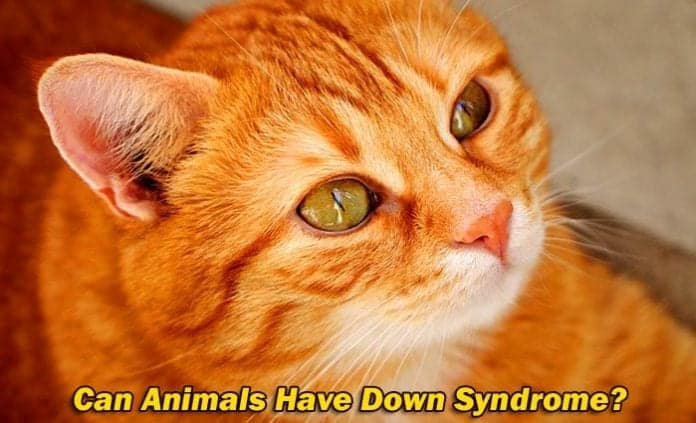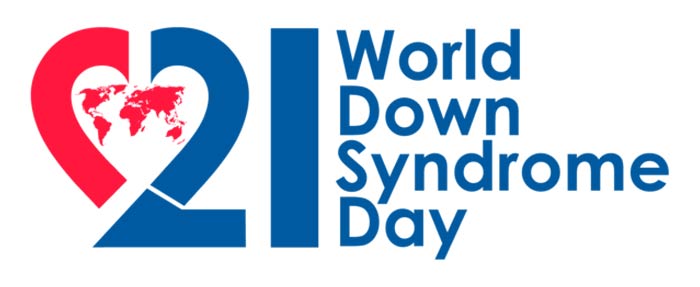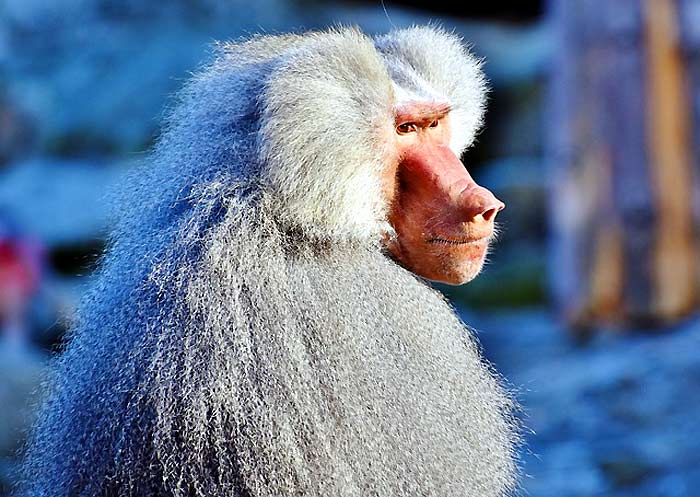
Can Animals Have Down Syndrome? Animals and humans can share a host of different diseases and illnesses. Although they may manifest and present differently in the two, animals too can acquire genetic disorders.
Whether or not animals can have Down syndrome requires much research and understanding of the disease. Although animals are prone to genetic disorders and share genetic similarities with their human counterparts, not all animals can have Down syndrome.
Scientists and researchers can replicate trisomies in mice to use them as a disease model to study genetic processes. However, very few reports on animals may have the syndrome. We will explore these reports in detail within the scope of this article.
Table of Contents
What is Down Syndrome?

Down syndrome is a condition that occurs due to the presence of an extra copy of the chromosome 21 in the nucleus of the cells of the body. This extra genetic material in the body causes phenotypical characteristics exclusive to individuals with Down syndrome.
Phenotypically, it is characterized by intellectual disability, susceptibility to developing diseases like Alzheimer’s and thyroid problems, a particular facial appearance, and decreased cognitive function. Other problems such as digestive issues and weak muscle tone are also common in Down syndrome patients.
![]()
How Is Down Syndrome Caused?
At the molecular level, a defect in the process of cell division leads to the daughter cell acquiring an extra copy of the 21st chromosome. It is also known as trisomy 21. Two different processes can cause the features of Down syndrome.
- An individual can have two normal copies of the 21st chromosome and extra material from a third 21st chromosome attached to another chromosome. This process is also called translocation and occurs during the recombination process in cell division. It is called non-disjunction Down syndrome and occurs in 95% of the cases of Down syndrome.
- A smaller percentage (5%) of individuals can have three full copies of the 21st chromosome caused by a defect in the division of genetic material during cell division. This type of Down syndrome is termed mosaicism.
![]()
Can Animals Have Down Syndrome?
Down Syndrome in Primates

Genetically, the closest relatives of human beings are the primates. Human beings have 46 chromosomes, whereas chimpanzees have 48 chromosomes.
- Down syndrome can occur in primates such as chimpanzees and has been documented in some cases. In chimpanzees, the 22nd chromosome is homologous to human chromosome 21; a trisomy 22 found in chimpanzees was documented as its syndrome.
- Symptoms exhibited in this case were similar to Down syndromes, such as vision problems, growth retardation, nystagmus, and strabismus. Researchers aimed to improve the quality of life of the chimpanzee after she turned blind at the age of 7.
Suggested Reading:
Albino Monkeys
![]()
Down Syndrome in Tigers

Another questionable case of the down syndrome was reported in a white tiger named Kenny. This tiger was said to be inbred while in the United States.
- The reports, however, are very controversial, and researchers claim that although, due to inbreeding, the white tiger did have many deformities and genetic disabilities, they were far from Down syndrome.
- One reason for this controversy is that white tigers have only 19 pairs of chromosomes instead of 23 pairs in humans.
![]()
Down Syndrome in Dogs

Whether the condition of a down syndrome exists in dogs is also a center of controversy. Scientific proof does not exist as yet that testifies that this condition occurs in dogs.
However, over time, multiple reports surface based on symptomatic observations that dogs, too, can suffer from this disorder. Dogs have 39 pairs of chromosomes, and to pinpoint which of this chromosome are homologous to human 21st chromosome and can manifest as the down syndrome is not nearly as easy as it seems.
The duplication of the 21st chromosome in dogs and humans would have entirely different effects due to the difference in genetic content between the two species. Perhaps, there could be three reasons why this syndrome has not been defined in dogs as yet:
- The type of genetic abnormalities accompanying a full manifestation of Down syndrome may lead to low survival rates, i.e., early death in dogs, and thereby may go undetected.
- Genetic testing at veterinary establishments for identifying any symptoms that may be thought to result due to a genetic abnormality or a trisomy merely is not done, not available or not deemed essential.
- The condition of Down syndrome in animals doesn’t exist.
If we look at these points carefully, two aspects come to light – first, that worldwide research in molecular biology and genetics is more prevalent for human species than it is for other species in the animal kingdom; and second, that even though a trisomy may occur in the genome of dogs, it may not necessarily show the same symptoms of down syndrome, and thereby not be down syndrome at all!
For instance, dogs have many congenital abnormalities and birth defects that may look like Down syndrome but are unrelated. A good example would be that of congenital hypothyroidism.
This disorder is caused by absent or low levels of circulating or produced thyroid hormone in dogs by birth or in early life that can cause a variety of symptoms such as:
- Delayed growth.
- Short stature due to delayed growth.
- Large tongue.
- Abnormal gait.
- Weak muscle tone.
- Mental dullness.
- Delayed tooth eruption.
- Delayed opening of the eyes and ears.
Among these symptoms, delayed growth, muscle tone, and mental dullness can be easily mistaken as symptoms of Down syndrome.
![]()
Down Syndrome in Cats

Cats can also suffer from genetic abnormalities, not necessarily down syndrome.
- Some of these genetic disorders, such as Klinefelter’s syndrome that occurs in cats, can have symptoms that are common with Down syndrome.
- The presence of certain facial features and the ability to gain weight rapidly are some of these symptoms. Cats have only 19 pairs of chromosomes and are devoid of the 21st chromosome present in humans, attributed to Down syndrome.
![]()
Trisomies, caused by translocations and non-disjunction events can easily occur in animal genomes as well. However, they are not necessarily Down syndrome as not all animals may have a chromosome homologous to the human 21st chromosome.
The primary cause of Down syndrome is an extra copy of the genetic material on chromosome 21. As described earlier, primates have been known to have this defect. However, this syndrome is not found in other animals.
Further research may uncover animal genetic disease transmission and occurrence.
![]()


















